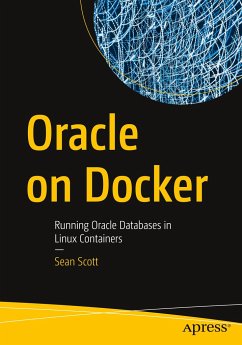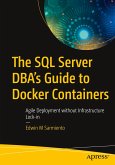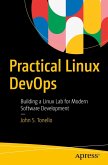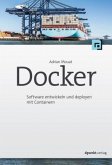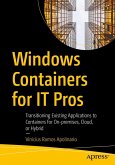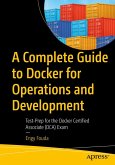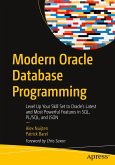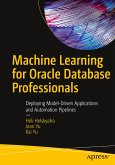Discover the benefits of running Oracle databases in Linux containers. This book approaches containers from the perspective of database administrators, developers, and systems administrators. It explains the differences between containers and virtual machines and describes why containers deliver greater speed, flexibility, and portability, with lower resource requirements. You'll learn how running Oracle databases in containers complements existing database infrastructure and accelerates development, and you'll understand the advantages they offer for test and validation environments. This book teaches you how to begin working with Oracle databases in Docker, covering the steps for preparing and installing software on Windows, Mac, and Linux systems. It describes the steps for deploying Oracle databases, separating data and configurations from database software, and networking and communicating with your containers. It introduces the Docker commands you'll use for managing containers, including tips and shortcuts to make everyday tasks easier. Databases have unique demands for performance and reliability, and this book addresses those qualities with discussions on protecting, persisting, and distributing data. Other books may overlook these topics and approach containers as disposable commodities in serverless environments or convenient coding platforms. You'll gain battle-tested insights for customizing and extending your containers to meet different needs. The opening chapters concentrate on the practical steps of running Oracle databases in Docker. Once you're comfortable with container terminology and methods, you'll look deeper at the real power behind containers-preparing and building images, and the templates that form the foundation beneath every container. You'll begin by modifying publicly available image manifests, or Dockerfiles, following multiple examples that add functionality and capabilities to your databases. You'll discover methods for using run-time options to create flexible and extensible images that adapt to real-world requirements. Within the pages, you'll see how Oracle and Docker empower you to confidently build and deploy systems. It's written with databases and database users in mind and delivers practical advice based on the author's real-world, battle-tested experiences deploying and running Oracle databases in containers since 2014. With Oracle databases in containers, database administrators have the ideal platform for evaluating performance, practicing database upgrades and migrations, validating backup and recovery processes, and hardening environments. Developers will find that the marriage of Oracle and Docker simplifies code and application tests. Docker's unique ability to isolate data artifacts improves reliability and confidence in test and QA processes. If you're a database administrator, this book will help you join the container revolution sweeping the industry and making IT professionals more productive than ever! What You Will Learn * Recognize when and why to use containers for an Oracle database * Understand container terminology and architecture * Create and customize Oracle databases in containers * Build and extend images and containers for multiple uses * Store and persist data beyond the container ecosystem * Use popular database tools with databases in containers * Explore container networking and connect multiple container databases * Manage, monitor, and secure containers * Write Dockerfiles to support custom requirements * Package and deploy data artifacts that accelerate development, test, and QA activities
Hinweis: Dieser Artikel kann nur an eine deutsche Lieferadresse ausgeliefert werden.
Hinweis: Dieser Artikel kann nur an eine deutsche Lieferadresse ausgeliefert werden.

